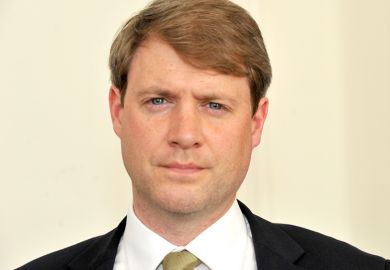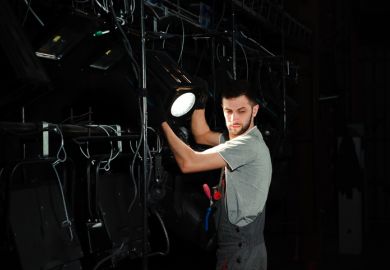The humanities should not be reduced to a “cherry on top” of other disciplines, merely helping to implement solutions that grow out advances in science and engineering, academics have warned.
For many research funders and interdisciplinary institutes, it has become a commonplace that the natural sciences, technology and engineering need input from the humanities to crack humanity’s problems.
The European Commission, for example, has tried to incorporate humanities and social sciences into research programmes to ensure that the technical solutions that emerge from scientific breakthroughs have a demonstrable social impact.
But speaking at the Positioning the Humanities in the 2020s conference in Hanover, Homi Bhabha, director of Harvard University’s Mahindra Humanities Center and an influential scholar of post-colonialism, warned against putting the humanities entirely “in the service of relevance” or thinking of them as simply “problem-solving for the sciences and engineering”.
He was echoing Wilhelm Krull, secretary general of the Volkswagen Foundation, a German research funder that organised the conference, who said that the humanities must “avoid…the trap of just becoming a service industry for problem-solving” in other subjects.
“Instead, there is a clear need for them to autonomously develop their own genuine research questions which can prominently contribute to achieving social, cultural or economic solutions,” Dr Krull told an international audience of humanities scholars.
Joseph Chinyong Liow, dean of the College of Humanities, Arts and Social Sciences at Singapore’s Nanyang Technological University, warned of an “emergent discourse” in science, technology, engineering and mathematics.
“On the one hand, I am very edified by my engineering colleagues who actually want to work with their colleagues in humanities and social science. That’s very encouraging,” he said. “But you probe further, you find on the other hand that for them, humanities and social science is sort of the cherry on top.”
Colleagues would come up with “cool AI stuff”, he said, but then realise that it “has to be ethical”, at which point “they look across the room at you”.
“Humanities has to be involved in the framing of the question,” Professor Liow said, “not just serving as the sort of trimmings.”
One question raised by several speakers was whether humanities was undervalued because it was cheap compared with the natural sciences. Professor Bhabha jokingly asked whether he should open a “$10 million Hannah Arendt lab” to improve the humanities’ status.
The public “think they know what a scientist is, they think they know what an artist is; but we have this word ‘humanities’, which is a very, very difficult word”, said Barry Smith, director of the Institute of Philosophy at the University of London’s School of Advanced Study.
“It’s not that hard to see that some of that is our fault. Science, especially the natural sciences, has been spectacularly successful of late at making popularised versions of their work available,” he said.
“People read it in the newspapers, people read it in books. Do we do that? Not often, and if we do, certainly in my discipline, you tend to come in for a lot of criticism [that] you’re not doing the real thing.”
Another obstacle for the public was “the language we use”, which mimicked the natural sciences in becoming heavily theorised, Professor Smith warned in a response addressed to Professor Bhabha – whose work some have described as incomprehensible.
Register to continue
Why register?
- Registration is free and only takes a moment
- Once registered, you can read 3 articles a month
- Sign up for our newsletter
Subscribe
Or subscribe for unlimited access to:
- Unlimited access to news, views, insights & reviews
- Digital editions
- Digital access to THE’s university and college rankings analysis
Already registered or a current subscriber?










